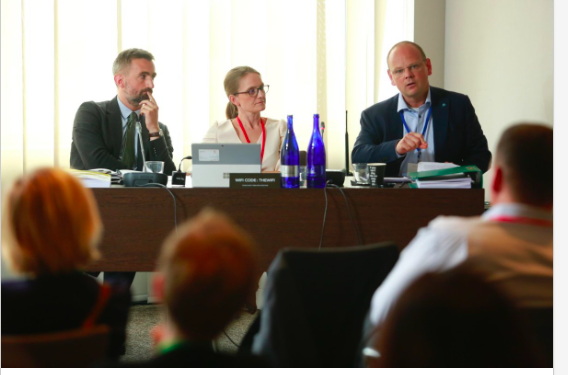Yesterday, I joined a panel discussion on Better Regulation yesterday at Cosmetics Europe.
Better Regulation is the most significant act this Commission has introduced. I remember the times when the Commission introduced new legislation on the basis of the Commissioner’s weekend reading. Basic quality control of proposals all too often seemed to be missing.
Today, too many people think Commission proposals come from the political ether guided by unknown political spirits. From a 20 year perspective, this is not so.
Political decisions are still made. There is no way you’ll remove the political DNA out of a politician and all Commissioners are politicians. Yet, the safeguards built into the system against arbitrary initiatives are now deep.
I’d go so far as to say that the new transfusion of the Better Regulation DNA is a success.
10 things I learned
- The Regulatory Scrutiny Board has provided 4 double negative opinions. Only 1 was taken forward to a proposal. I think it is the SMIT proposal. That is now blocked by the Member States.
- When the Regulatory Scrutiny Board provide approval with reservations, those reservations need to be taken on board into the revised proposal during inter-service consultation. It is a set part of the inter-service scrutiny.
- An incidental benefit and a big advantage of the process is that it helps prepares officials for any future legislative talks.
- There are around 1600 delegated acts a year and this has more or less been continuous since 2009.
- Commission staff receive systematic training. There is no reason for them not to know what it is about.
- The Sec-Gen decide what ‘significant impact’ is when dealing with launching an impact assessment for secondary legislation.
- Political and urgent decisions can be used to bypass the usual processes. This happened during the migration crisis.
- As a general rule, when a Risk Assessment has been performed by an agency, the process won’t be re-run by an impact assessment.
- Some isolated Commission departments have a lax approach to Better Regulation.
- The 2nd edition of the Better Regulation Guidelines and Handbook are clear and well-written guides. And, hardly anyone reads them, let alone consult them in detail. This is a crying shame. These are excellent guides through the policy and law making process. Many of the key answers are there. A map or GPS system is only useful if you use it.
